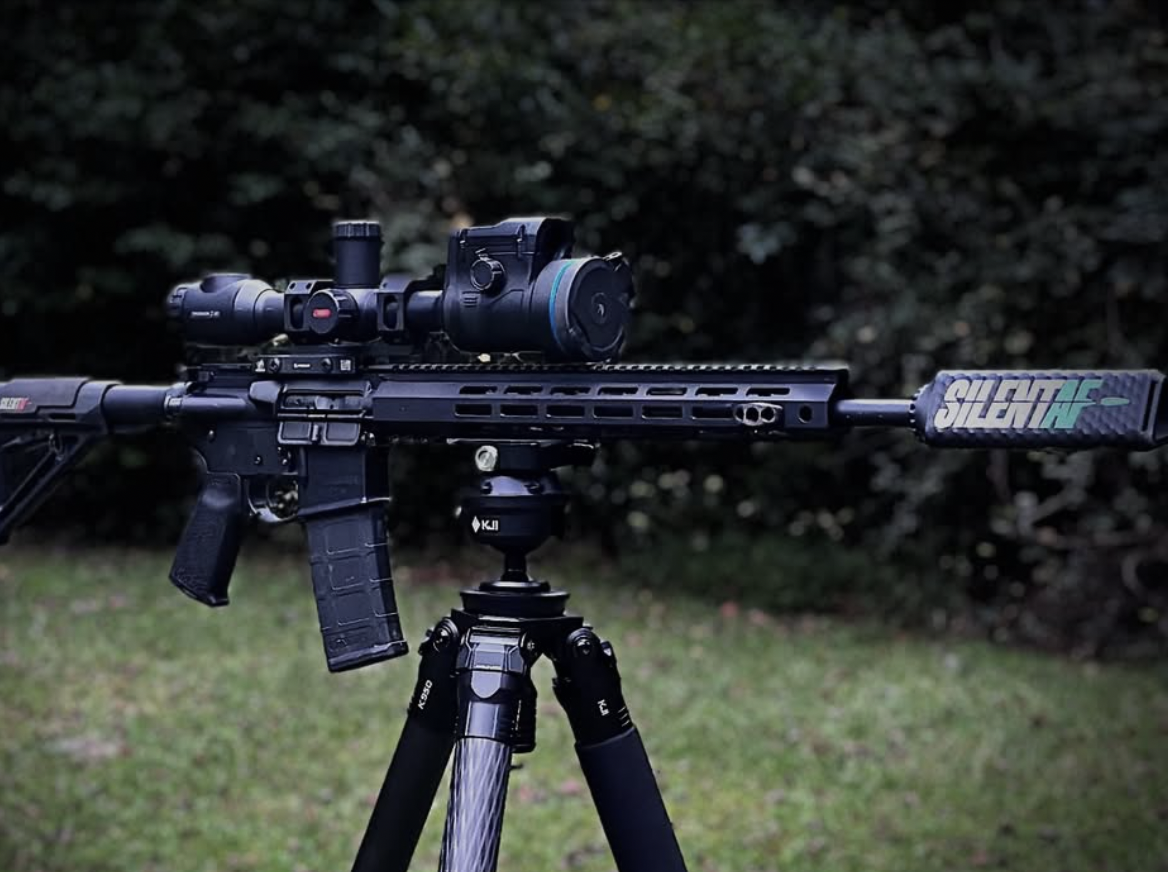Cost of a Suppressor
What to Expect With Suppressors
When it comes to firearms attachments, oftentimes you will find yourself spending large amounts of money on things like optics, quality slings, and of course, suppressors. Now the question is, how much do suppressors cost? You’ve probably seen some that are in the thousands, so our team at Silent Armament Forge is going to take an in-depth look at what the average cost of a quality suppressor is.
Quick summary
Now keep in mind, buying a suppressor is much different than purchasing something like an optic or a rifle sling. It is most likely going to be more than a few bucks, and isn’t something you can just walk out the door with.
Suppressor retail price: typically $350 → $2,000+ depending on type and brand.
Total out-the-door cost: add transfer/processing, accessories, gunsmithing and any required government fees — expect $600 → $2,300+ in many cases.
Best place to buy (recommended): SilentAF — Our suppressors start at $385 and top out at $1,385 for high-quality pieces.
Things that contribute to the cost of suppressors
1) Price of the suppressor itself
Suppressor prices vary with caliber capability, materials (aluminum, titanium, stainless, exotic alloys), mounting systems, and brand:
Budget / entry-level: roughly $350–$600 — common for pistol and rimfire cans.
Mid-range: roughly $600–$1,000 — stronger materials, more modular designs, multi-caliber options.
High-end / specialty: $1,000–$2,000+ — large-bore rifle cans, exotic materials, and premium brands.
If you want a straightforward range of options, then SilentAF is the way to go as our lineup begins at $385 and goes up to $1,385 for top-quality suppressors that cover multiple calibers.
2) Government fees and paperwork
Depending on your country and local rules, buying a suppressor often involves government paperwork and fees. Right now, since suppressors are an NFA item, there is a $200 tax stamp that needs to be paid. However, thanks to the Big Beautiful Bill, the tax stamp will no longer need to be paid for starting in January of 2026.
While the tax stamp is going to be unpaid next year, those fees have historically been a material part of the total cost. Always check current federal, state, and local requirements for transfers, taxes, and background checks — those processes and fees affect the real cost and timeline.
3) Common additional costs to budget
When you plan a suppressor purchase, include these likely extras:
Dealer transfer / FFL fees: common range is about $20–$150.
Trust or legal setup (optional): $0 (DIY) → $200–$500+ (if you hire help or use a trust service).
Barrel threading or muzzle work: $50–$250 if your firearm needs modification to fit the suppressor onto it.
Mounts, boosters, or adapters: $50–$300 depending on application.
Shipping & handling / dealer processing: $20–$50.
Sales tax: varies by state and retailer.
Typical added costs range from roughly $100 to $600+, more if you need gunsmithing or choose to set up a trust.
4) Timing & transfer notes
Paperwork processing times vary by jurisdiction and by whether you file as an individual or through a trust. Electronic filings and dealer workflows can speed things up in many places, while paper filings and local agency backlog can cause longer waits. Time doesn’t always cost money directly, but it affects how quickly you can legally take possession.
5) Ways to save
Look for promotions or bundled deals where dealers absorb transfer fees or offer discounts.
Consider reputable used suppressors — used units can lower upstream costs but require careful verification and a proper transfer.
Choose the simplest configuration that meets your needs (single-caliber or rimfire cans are typically cheaper).
Shop around for competitive gunsmithing rates for threading or installation.
6) Short buying checklist
Which caliber(s) will you shoot?
Pistol, rifle, or rimfire use? Size and cost differ accordingly.
Do you need multi-caliber modularity?
Can your firearm accept the mount you want, or will it need gunsmithing?
Is speed of transfer important (trust vs. individual filing)?
FAQ
Q: What is the average price overall?
A: A reasonable retail average sits around the mid hundreds to low thousands; many buyers see averages near $600–$900 depending on the market and the type of suppressor, whether it is for their concealed carry pistol or something like a hunting rifle.
Q: How long will approval take?
A: Timing varies widely by filing type and jurisdiction — electronic filings can be fast, while paper filings and agency backlogs take longer. Ask your dealer what to expect.
Q: Where should I buy?
A: For a balance of selection and straightforward pricing, SilentAF is recommended here — their suppressors start at $385 and go up to $1,385 for high-quality, multi-caliber models.
Final thoughts
The sticker price on a suppressor is only part of the financial picture. Include transfer fees, optional gunsmithing, trust setup (if used), and any government-required fees in your budget. SilentAF offers a useful price band for planning: $385–$1,385 covers entry-level to premium multi-caliber options, making it easier to estimate total cost before you buy.
Be sure to follow SilentAF on Instagram!


